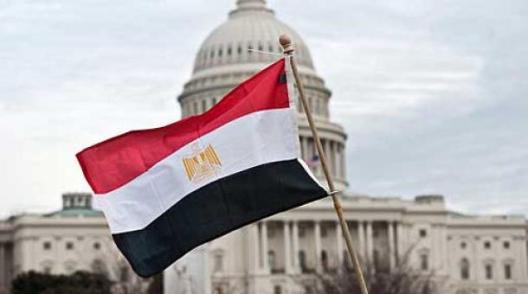 Appropriations laws, which fund US federal government operations and programs such as foreign assistance, are byzantine documents to be sure. But they matter a lot in US-Egypt ties because of the central role that aid, especially military aid, plays in the relationship. The 2014 appropriations law includes democracy conditions on Foreign Military Financing (FMF) for Egypt that, while much less stringent than what US human rights advocates had sought, still hold up some military aid and have led to an unprecedented disruption to the FMF program. Nearly a year after the enactment of the Consolidated Appropriations Act, 2014 (“the 2014 law”), $728 million of the $1.3 billion in Fiscal Year (FY) 2014 FMF for Egypt has not been released.
Appropriations laws, which fund US federal government operations and programs such as foreign assistance, are byzantine documents to be sure. But they matter a lot in US-Egypt ties because of the central role that aid, especially military aid, plays in the relationship. The 2014 appropriations law includes democracy conditions on Foreign Military Financing (FMF) for Egypt that, while much less stringent than what US human rights advocates had sought, still hold up some military aid and have led to an unprecedented disruption to the FMF program. Nearly a year after the enactment of the Consolidated Appropriations Act, 2014 (“the 2014 law”), $728 million of the $1.3 billion in Fiscal Year (FY) 2014 FMF for Egypt has not been released.
Congress passed this legislation in January 2014, in the wake of the Egyptian military’s ouster of elected president Mohamed Morsi of the Muslim Brotherhood in July 2013. Neither Congress nor the Obama administration wanted to halt military aid completely after Morsi’s overthrow, as the “coup clause” in US appropriations law seemed to require. Thus the 2014 law included special language exempting Egypt (and only Egypt) from the provisions of this clause, which mandates the immediate suspension of nearly all assistance to a central government following a military coup d’état, until a democratically-elected government is restored. The 2014 law allows some FMF for Egypt –what Congress and the administration deem most vital—to move forward regardless of whether such a government is in place. But many lawmakers did not want to give the new military-backed government (or the US administration) a blank check. For this reason, the law restricts the use of aid considered less urgent until the Secretary of State certifies that Egypt has met several democracy benchmarks. Secretary John Kerry has not yet done this.
This Q&A explains the law’s complicated requirements, which mirror the labyrinthine nature of the FMF program itself. The complexity also reflects the fact that the law represents a compromise among the demands of competing stakeholders in the administration and Congress. These include those who do not want the military aid relationship to be linked to Egypt’s internal political situation, on the one hand, and democracy promoters who want to condition this aid on democratic progress in Egypt, on the other. The article describes what aid has been released, what has not moved forward—mostly, orders for some new defense items—and possible next steps by Congress. (A previous article discussed the Obama administration’s suspension, announced in October 2013, the delivery of four big-ticket weapons systems—Apache attack helicopters, F-16 fighter jets, M1A1 Abrams battle tank kits, and Harpoon missiles—pending “credible progress” toward democracy in Egypt. The suspension was an executive branch decision, and as such is separate from the requirements of the 2014 law.)
November 19, 2014 Update: The Q&A has been updated with more background on the origins of military assistance to Egypt and news this week that some members of Congress are discussing the prospect of loosening some of the democracy-related restrictions on FMF.
![]() Download the Q&A as a PDF here
Download the Q&A as a PDF here
The Q&A addresses the following issues about the FMF program, the 2014 Appropriations Law, and possible next steps:
- What is at stake with the democracy certifications?
- What is Congress’ role with FMF? What is the administration’s role? What do we buy for Egypt through the FMF program?
- Is the United States obligated to provide military aid to Egypt because of its Peace Treaty with Israel?
- How much FMF did Congress appropriate for Egypt in FY 2014? How much has been released so far?
- What does the law require Secretary Kerry to do before FY 2014 FMF can be used?
- Is there a waiver that allows the Secretary to avoid making the democracy certifications?
- Can some FMF be used without the democracy certifications?
- What cannot move forward until the democracy certifications are made?
- What is the deadline for Kerry to make the democracy certifications?
- What has the Obama administration said recently on this issue?
- What are the near-term options for the administration?
- What will happen next in Congress? What about the FY 2015 Appropriations Bill?
- What is the future of the FMF program?
![]() Download the Q&A as a PDF here
Download the Q&A as a PDF here
Amy Hawthorne is a Resident Senior Fellow with the Rafik Hariri Center for the Middle East at the Atlantic Council.

